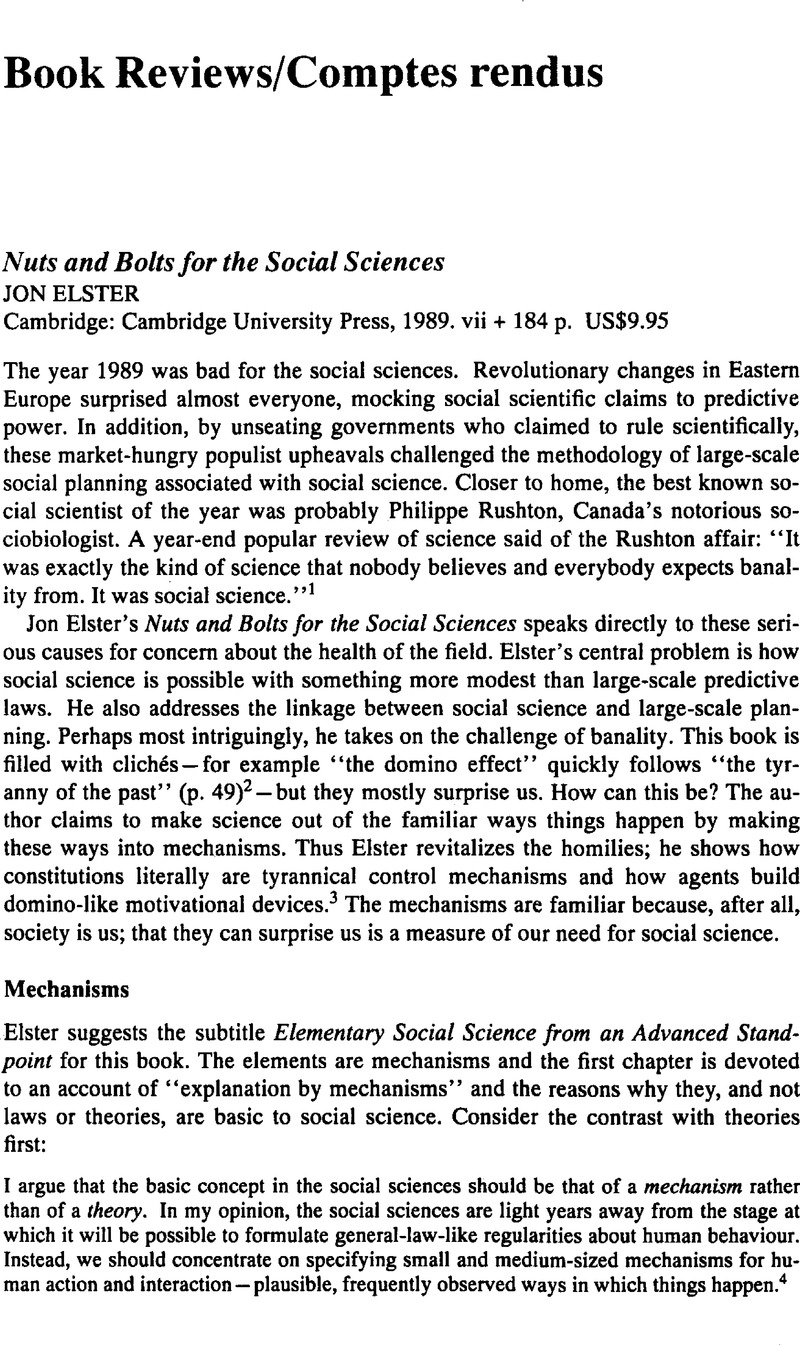No CrossRef data available.
Published online by Cambridge University Press: 13 April 2010

1 Strauss, Stephen, “Post-Modern Science and Magical Powers,” Globe and Mail, 12 30, 1989, p. D3Google Scholar.
2 Numbers in parenthesis refer to the book under review.
3 Elster's wide-ranging literacy modulates his homilies, so that “‘Tis better to have loved and lost, than never to have loved at all” is set against“ ‘Tis less grief to be foul, than to have been fair.”
4 Elster, Jon, The Cement of Society: A Study of Social Order (Cambridge: Cambridge University Press, 1989), p. viiiCrossRefGoogle Scholar.
5 Rosenberg, Alexander, Philosophy of Social Science (Boulder, CO: Westview Press, 1988), p. 1Google Scholar.
6 Cf. Elster, Jon, Solomonic Judgements: Studies in the Limitations of Rationality (Cambridge: Cambridge University Press, 1989)Google Scholar.
7 As a proponent of analytical Marxism, Elster's account of social norms can also be evaluated from the point of view of the Marxist tradition. For example, Martin, Bill, “How Marxism Became Analytic,” Journal of Philosophy, 86 (1989): 664,CrossRefGoogle Scholar argues that “[w]ithout firmly grounded notions of solidarity, however, it is hard to see what makes Elster's system of ideas ‘Marxist’.” However, such criticism takes us beyond the scope of the book under review.
8 See Green, Leslie, The Authority of the State (Oxford: Oxford University Press, 1988)Google Scholar.